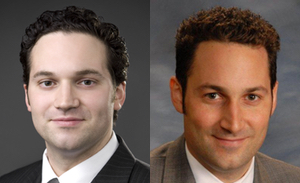Abuse of no-fault law happens on both sides, hurts victims
No one plans to be in an auto accident. Victims are unwilling participants in a sudden and terrifying event that may change their lives forever. As Michigan auto accident victims attempt to learn about their legal rights, they must navigate through a maze of information – one that often makes it more difficult for them to recover injury benefits and move on with their lives.
Michigan’s auto no-fault law provides the most comprehensive medical coverage for accident injuries in America. Yet as quickly as they learn about their rights, victims may be confronted with an overwhelming amount of misinformation, questionable tactics, even criminal activity. This comes from a variety of bad actors.
One example is unscrupulous lawyers and medical professionals who attempt to directly solicit auto accident victims. These solicitations are typically to convince victims to become part of a scheme to pursue unnecessary medical treatment and work up frivolous lawsuits. Insiders call these “runner and capper” schemes. This phenomenon was recently reported in a recent Bridge story about no-fault abuse.
These types of schemes have no place in our society. The good news is that in 2013, the Michigan Legislature amended Michigan law to criminalize this conduct. It is now a crime for anyone to directly solicit an auto accident victim within 30 days after an accident. In addition, for the first 30 days after an accident, a person or organization is prohibited from using a police report for any direct solicitation. These are good reforms that were supported by the plaintiffs’ trial bar and consumer groups like the Coalition Protecting Auto No-Fault (CPAN).
Unfortunately, these reforms haven’t deterred all the bad actors. It is common for us to see in our practice clients who receive direct solicitations. These solicitations often come in the form a phone call from a person who won’t fully identify themselves. These shadowy people usually promise a quick settlement, ask the victim to sign paperwork, or suggest medical treatment from someone that the victim has never met. Consumers should be wary of this potentially criminal conduct.
But the bad actors are not only lawyers and medical professionals. They also exist in the insurance industry. Auto-accident victims are often confronted with overly aggressive insurance adjusters who look for virtually any reason to deny their claims. The tactics used by some insurance companies include conducting recorded interviews with the accident victim immediately following the accident. Unbeknownst to the victim, the adjuster is often seeking statements that the insurance company can later use to deny the victim’s claims for benefits.
And some adjusters will inaccurately explain the law or demand that the victim provide information that he or she is not actually required to provide.
Adjusters will also arrange for victims to undergo so-called independent medical examinations. Too often, these exams are done by doctors who, instead of treating patients, work primarily for insurance companies. In fact, recent lawsuits have uncovered that many of these doctors perform hundreds or sometimes thousands of insurance-company examinations each year. Not surprisingly, these doctors often disregard the recommendations of the victim’s medical providers and render conclusions that the adjuster uses to cut off further medical treatment. Unfortunately, the Michigan Legislature has done nothing over the past few decades to provide the people of Michigan with any further protection against this kind of insurance company conduct.
So auto-accident victims are not out of harm’s way following an accident. To protect their rights, victims must exercise their own due diligence and be cautious about whom they trust, whether lawyers or insurance companies. And while the Legislature considers changes to the Michigan auto no-fault law, it should consider reforms that protect people from all unscrupulous conduct – including that of insurance companies.
See what new members are saying about why they donated to Bridge Michigan:
- “In order for this information to be accurate and unbiased it must be underwritten by its readers, not by special interests.” - Larry S.
- “Not many other media sources report on the topics Bridge does.” - Susan B.
- “Your journalism is outstanding and rare these days.” - Mark S.
If you want to ensure the future of nonpartisan, nonprofit Michigan journalism, please become a member today. You, too, will be asked why you donated and maybe we'll feature your quote next time!


 Brothers Stephen (left) and Thomas Sinas are attorneys in the Sinas Dramis law firm, with offices in Lansing and Grand Rapids.
Brothers Stephen (left) and Thomas Sinas are attorneys in the Sinas Dramis law firm, with offices in Lansing and Grand Rapids.